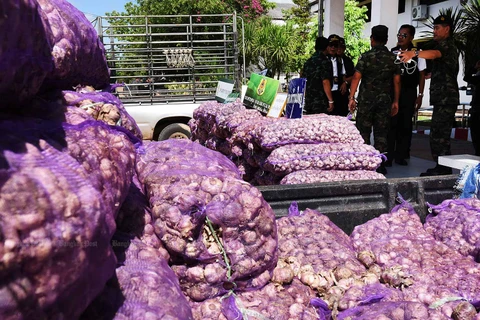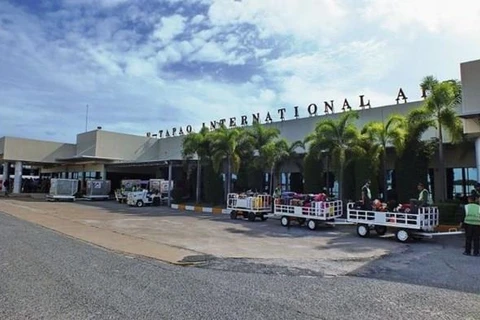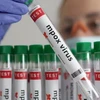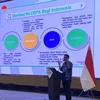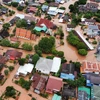Bangkok (VNA) – Thailand’s Deputy Agriculture Minister Mananya Thaiseth on August 9 ordered the Department of Agriculture to put the brakes on licence extensions for hazardous farm chemicals, and vowed to ban three substances by the end of this year.
She affirmed the determination to ban the three chemicals, namely paraquat, glyphosate and chloropyrifos, within the year, as well as find alternatives to replace the trio.
“Toxic farm chemicals are in the food we eat, and enter into the water, soil and environment”, she told the media.
She said she will inspect stockpiles of hazardous chemicals and lead a meeting on August 20, which is expected to pave the way for the ban on these three chemicals.
Thai consumers and the Ministry of Public Health have campaigned for the prohibition of these chemicals, citing their harmful health effects.
In 2017, the Ministry of Public Health pushed for the national committee overseeing the import and use of hazardous chemicals to ban the weed killers from January this year after academics reported they could have a harmful impact on human health. However, the panel still permits the limited and supervised use of the chemicals.
The Department of Agriculture has set a two-year time frame to study possible alternatives to the chemicals. It reportedly said that a ban would only be considered if restrictions on the use of the chemicals prove to be ineffective.
The latest study released early this month by the National Health Security Office showed that around 3,000 people were exposed to hazardous farm chemicals annually over the past four years, requiring at least 20 million THB (660,000 USD) each year in medical treatment costs.
Information collected from patients using the 30-THB universal health care cards from October last year to July 17 showed 3,067 patients had been admitted to hospitals due to illnesses caused by exposure to the chemicals, 407 of them died.
The weed killers paraquat, glyphosate and chlorpyrifos have been widely used by farmers in Thailand. Paraquat, in particular, has already been banned in 53 countries due to concerns over its health impacts. The other two are not banned but have seen their use restricted in several countries.-VNA
VNA

